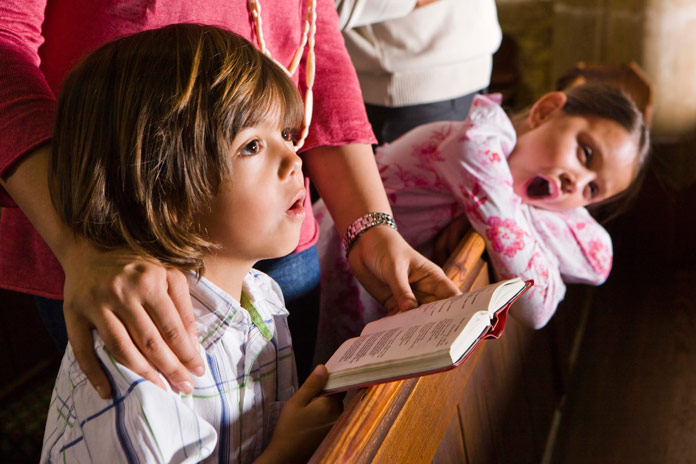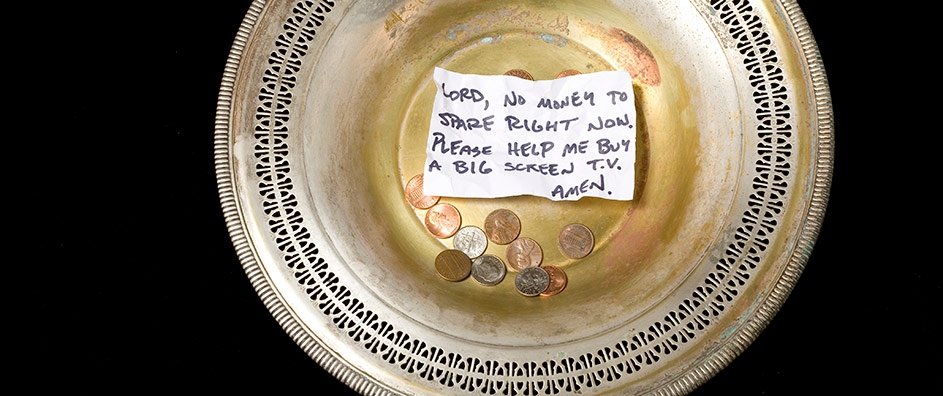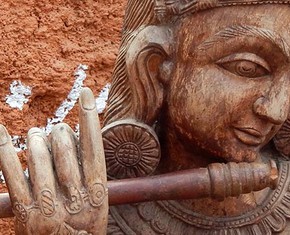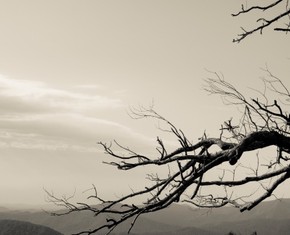The views expressed in our content reflect individual perspectives and do not represent the authoritative views of the Baha'i Faith.
O SON OF SPIRIT!
Know thou of a truth: He that biddeth men be just and himself committeth iniquity is not of Me, even though he bear My name.
O SON OF BEING!
Ascribe not to any soul that which thou wouldst not have ascribed to thee, and say not that which thou doest not. This is My command unto thee, do thou observe it. – Baha’u’llah, The Hidden Words, p. 10.
These powerful admonitions from the Baha’i writings warn us all about that great human failing called hypocrisy.
When I was a boy, my parents took me to a small Protestant church in the little farm town where we lived. I liked going at first. I got to sing, I played with other kids my age, and I had a sense, even as a child, that God loved, cared for and looked after children. At six and seven and eight years old, church felt like a place where God might want to visit, a sanctuary for spiritual feelings and kindness and love.
But then I turned 9, and it all began to fall apart for me. I gradually learned that some of the kids at church considered themselves better than others, and definitely better than me. We were a poor family, and the kids from the wealthier families, I discovered at nine years of age, looked down on us poor kids. They criticized our clothes, our values, our lack of sophistication. They bullied us or they ignored us. They set up a class system, I soon figured out, which they learned from their parents, and which replicated the stratified, prejudiced and unfair class system in the adult world. In their system, poor people and black people and brown people belonged in the basement; and they belonged in the penthouse.
 When I learned about this it came as a shock. Didn’t we all believe in the same God? And didn’t God ask us to love and be kind to one another? In my childhood thinking, I couldn’t understand why church, of all places, had to be this way.
When I learned about this it came as a shock. Didn’t we all believe in the same God? And didn’t God ask us to love and be kind to one another? In my childhood thinking, I couldn’t understand why church, of all places, had to be this way.
Then one Saturday, helping my father at the Chevrolet dealership where he worked, one of the ministers from the church brought his car in for service. I stood with my dad as he wrote up the work order. The minister smiled, greeted my father and I, and then described what his car needed. When he was finished, he asked my father “And of course you’ll be giving me the clergy discount.”
My father looked at the man. “We don’t offer a clergy discount. You’ll be charged fairly, no less and no more than anyone else.” The minister left in an angry huff.
“Hypocrite,” my father said.
“Dad, what’s a hypocrite?” I asked.
“It’s someone who doesn’t practice what he preaches,” my father told me. Later, when I was old enough to understand the freighted meaning of that word, my father told me that the minister who had asked for the clergy discount had been found guilty of embezzling church funds, and soon departed from the church and the community in disgrace.
Newly sensitized to the hypocrisy I saw in the congregation and in the ministry, I left the church soon after, and began a search for a belief system whose adherents weren’t hypocrites. Every teenager seems to newly discover the hypocrisy of the adult world, and I was no exception. I wanted a way back to the purity I felt as a child, and I looked everywhere for it.
I found the Baha’i Faith during that search, and met wonderful, dedicated Baha’is who definitely practiced what they preached – even though Baha’is don’t preach. I found a new paradigm of spirituality, where people truly try to do their best to live up to the beautiful, bountiful Baha’i ideals of oneness, unity and peace. I found a worldwide community where each believer is called by Baha’u’llah, in the Hidden Words above, to renounce hypocrisy and find an authentic, real expression of their own soul’s truth.
Eventually, though, as I became an adult, I learned that we all have some hypocrisy in us, including me. I learned to try to look within my own soul and measure my ideals against my actions, with the goal of bringing the two closer together each day. I learned that no one person ever achieves perfection, and that everybody, without exception, struggles to live up to their beliefs and their value systems. I learned to consider my own shortcomings, not those of others. And I learned that all people have to wage that deeply spiritual battle against their own inner tests and difficulties. Baha’u’llah tells us:
Honesty, virtue, wisdom and a saintly character redound to the exaltation of man, while dishonesty, imposture, ignorance and hypocrisy lead to his abasement. By My life! Man’s distinction lieth not in ornaments or wealth, but rather in virtuous behavior and true understanding. – Baha’u’llah, Tablets of Baha’u’llah, p. 57.
















Comments
Sign in or create an account
Continue with Googleor